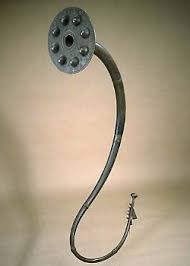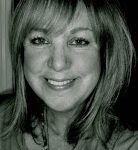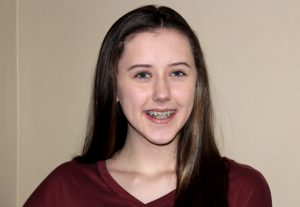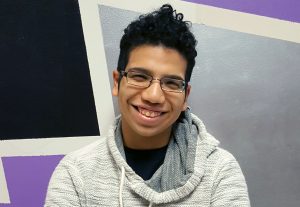By Don Laird, Psychotherapist, MS, NCC, LPC, and 2017 Speak & Tell! Camp Guest Presenter
What do you fear about public speaking? The short answer is: Not knowing what will happen when you are in front of a group of people. It’s not the topic that you are worried about. You know the material. You’ve studied your speech, rehearsed it, and played it out in your head a hundred times. Your worry stems from what will happen when you step to the podium.
The fear of being critiqued, making a mistake, or not measuring up, can all stop a good speech in its tracks or make a great performance mediocre at best. Always keep this mind; the people you are speaking in front of want you to do well. Nobody wants to sit through a bad speech. They want information delivered clearly and concisely and only you can stop that from happening. If you are genuine, relaxed, and you cover the material with clarity, you will win over the audience. In most cases, whatever you're frightened of most won't occur. Remember, if your inner dialog talked you into feeling worried then you can always self talk yourself out of fear.
- Be prepared.Make sure you know the material that you're going to cover. Create a detailed outline; make note cards, and allow yourself to visualize the text. As an example, associate parts of your speech to the time of day. For instance, imagine the first part of your outline is the early morning. The second part is Noon. The third part is the afternoon, etc. Associate each part of your speech or outline with how you imagine the time of day. You can also use pictures or photos to illustrate something that will help you remember a point. The morning of the presentation, do a run through using your particular visualization technique.
- Competency matters and practice does indeed make perfect (or at least close to perfect). Try to stick with topics that you are familiar with and have a level of interest that exceeds what you’ve written or researched. Liking a topic goes a long way. Speaking on a subject that you are not familiar with or interested in will typically increase your stress. Additionally, find alternate places that can afford you the opportunity to practice. Practicing your speech in the same location may not provide you with the flexibility needed when you “go live” in front of an audience.
- Relaxing is the art and science of letting go. There are many ways to relax, but one of the most efficient and easiest ways is to practice deep breathing. Practicing a breathing exercise daily will relax your body and mind. Here's one that you can do anywhere, even before your speech or presentation.
- Sit comfortably, with your knees bent and your shoulders, head and neck relaxed.
- Place one hand on your upper chest and the other just below your rib cage. This will allow you to feel your diaphragm move as you breathe.
- Breathe in slowly through your nose so that your stomach moves out against your hand. The hand on your chest should remain as still as possible.
- Tighten your stomach muscles, letting them fall inward as you exhale through your mouth. The hand on your upper chest must remain as still as possible.
- Don’t let them see you sweat. No one can read your mind, but they can read your body language. Appear nervous and the audience will know you are nervous. Your stomach might be in knots, but the crowd won’t know unless you make it obvious. Relax! (See Number 3) Most times, with public speaking, you think that people may notice you're nervous. Remember, this makes you even more nervous. Don't worry so much. As I said before, people want to see you succeed. They want a good speech. You can do this!
And so the day has arrived for you to deliver your speech or presentation. All of your preparation and hard work has brought you to this point. Be confident. Don’t allow yourself to be the only one in the room who thinks you don’t have this. Stand tall, shoulders back and smile. Even though you might not feel confident, do it anyway. You will look confident and the audience will respond accordingly. Follow the above points. Create a few of your own, but above all, relax and enjoy the moment.
To learn more about Speak & Tell! camp or any of our other exciting, fun and unique Summer Camps for Teens, email us at luminari@luminari.org or call us at (412) 877 -1888.
P.S. If you liked this post, you might enjoy our newsletter. Receive each new post delivered right to your inbox, plus some can’t-miss news and program updates from Luminari. Sign up here.
***
 Don Laird is a Licensed Professional Counselor and a Nationally Certified Counselor with more than 13 years of experience in providing help to adults, teens, couples, and families who are struggling with a wide range of issues including but not limited to: anxiety, depression, self esteem and confidence issues. As well as providing psychotherapy and counseling services, Don is a published author and adjunct professor who teaches graduate and undergraduate courses in professional counseling and psychology at Carlow University. Additionally, he facilitates workshops in the areas of dreams, self growth, and stress reduction and co-host a podcast on psychology.
Don Laird is a Licensed Professional Counselor and a Nationally Certified Counselor with more than 13 years of experience in providing help to adults, teens, couples, and families who are struggling with a wide range of issues including but not limited to: anxiety, depression, self esteem and confidence issues. As well as providing psychotherapy and counseling services, Don is a published author and adjunct professor who teaches graduate and undergraduate courses in professional counseling and psychology at Carlow University. Additionally, he facilitates workshops in the areas of dreams, self growth, and stress reduction and co-host a podcast on psychology.




 Paintings of bronze lurs have been found in rock formations in Scandinavia.
Paintings of bronze lurs have been found in rock formations in Scandinavia. Luminari Coordinator, Beth Dolinar brings her talents and experience as a writer, Emmy-award producer, public speaker and deadline driven multi-tasker to our team. She writes a popular column for the Washington “Observer-Reporter.” She is a contributing producer of documentary length programming for WQED-TV on a wide range of topics and currently teaches as an adjunct faculty member at Robert Morris University. Beth has a son and a daughter. She is an avid yoga devotee, cyclist and reader. Beth says she types like lightning but reads slowly — because she likes a really good sentence.
Luminari Coordinator, Beth Dolinar brings her talents and experience as a writer, Emmy-award producer, public speaker and deadline driven multi-tasker to our team. She writes a popular column for the Washington “Observer-Reporter.” She is a contributing producer of documentary length programming for WQED-TV on a wide range of topics and currently teaches as an adjunct faculty member at Robert Morris University. Beth has a son and a daughter. She is an avid yoga devotee, cyclist and reader. Beth says she types like lightning but reads slowly — because she likes a really good sentence. Among the students who will enjoy seven days and two cities’ worth of learning, friendship and fun are a budding cake maker and a budding comedian. They are Kailee Monaghan and Jesus Chacin, high school students who have never met and have widely differing hobbies, but who share some of the same goals.
Among the students who will enjoy seven days and two cities’ worth of learning, friendship and fun are a budding cake maker and a budding comedian. They are Kailee Monaghan and Jesus Chacin, high school students who have never met and have widely differing hobbies, but who share some of the same goals. “I think these things are very important because people can then learn to communicate more productively with their boss, co-workers, friends and family,” said Jesus, 16, a student at Avonworth High School.
“I think these things are very important because people can then learn to communicate more productively with their boss, co-workers, friends and family,” said Jesus, 16, a student at Avonworth High School.